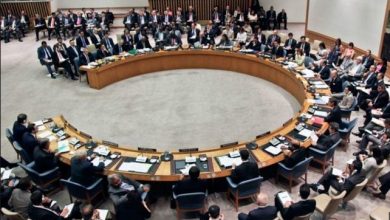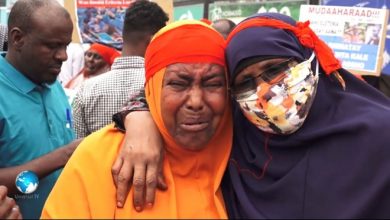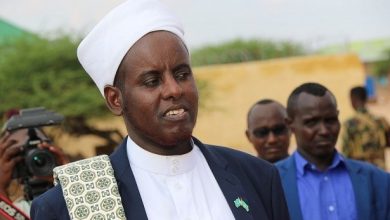Expectations high for Somalis in Minnesota after U.S. re-establishes permanent diplomatic ties
After 27 years with no diplomatic presence, the move reflects perceived progress despite corruption, al-Shabab.
After 27 years with no diplomatic presence, the move reflects perceived progress despite corruption, al-Shabab.
U.S. Ambassador to Somalia Donald Yamamoto at a recent forum alongside Jibril Afyare, president of the Somali American Citizens League.
Before reporting to the United States’ diplomatic mission to Somalia last month, new U.S. Ambassador Donald Yamamoto paid a visit to members of Minnesota’s vast diasporic community.
Yamamoto’s dialogue here has since taken on new meaning for Somali-Americans in Minnesota — home to the nation’s largest Somali community — with news this week that the State Department is re-establishing a “permanent diplomatic presence” in the country for the first time in more than a quarter-century.
“The community feels like we have been heard and we have been listened to,” said Jibril Afyare, president of the Somali-American Citizens League, who helped facilitate Yamamoto’s visit.
The U.S. described the historic move as a reflection of Somalia’s recent progress and an important step toward formalizing diplomatic engagement in Mogadishu, the country’s capital, which hasn’t had a U.S. embassy since the central government collapsed under the weight of civil war in 1991.
Abdi Samatar, a University of Minnesota professor, credited an increased willingness among citizens to invest in improving Somalia’s infrastructure for paving the way for a diplomatic move he described as positive and symbolic. Whether it ultimately proves substantive, Samatar said, remains to be seen.
“Unless there is a seriousness in Mogadishu on the Somali side, this may come to naught in many ways,” Samatar said.
Corruption still plagues the government, Samatar said. Transparency International, a nongovernmental organization based in Germany, recently ranked Somalia worst among all countries in its Corruption Perceptions Index, citing “weak public institutions, internal conflict and deep instability.”
Continued al-Shabab threat
Meanwhile, the al-Shabab terror group continues to wreak havoc through regular attacks along Mogadishu’s principal thoroughfares. A truck bombing killed nearly 600 people last year in Somalia’s deadliest-ever terror attack. No group officially claimed responsibility for the bombing, but officials have suspected a link to al-Shabab. Bringing that group under control and achieving a sense of stability will remain a top priority for Somalis abroad and for their relatives in Minnesota, Samatar said.
“I just think the psychological boost for the community will be tremendous if Somalia comes back to be a normal country,” Samatar said.
Expectations already are high in Minnesota following the State Department’s announcement Tuesday, said Democratic state Rep.-elect Mohamud Noor.
“The road map, I think, depends on the people who are governing Somalia, but there is also a stake we can play in terms of ensuring that there is transparency and there is accountability,” Noor said.
Noor was elected last month to represent a state House district that is home to the Cedar-Riverside neighborhood, known for its large Somali population. Noor will replace U.S. Rep.-elect Ilhan Omar, who in January will become the first Somali-American sworn into Congress. Both Noor and Afyare said they looked forward to Omar giving the community a seat at the table at a time when diplomacy between the U.S. and Somalia appears ascendant.
A force in Minnesota
U.S. Sen. Amy Klobuchar, D-Minn., said in a statement that Minnesota’s Somali community “has contributed so much to the cultural and economic vitality of our state.”
“While significant challenges remain toward achieving security and stability in Somalia, the reestablishment of a permanent diplomatic presence will strengthen our relationship with the Government of Somalia,” Klobuchar said.
Until recently, the U.S. ran its diplomatic mission out of neighboring Kenya. The U.S. has sought to re-establish its diplomatic presence in Somalia since 2015, two years after formally recognizing the country’s new government.
Afyare said that now that the U.S. has achieved that goal, Somalia has itself taken a step closer to becoming part of the international community.
“Progress is something we are proud of,” Afyare said.
Twitter: @smontemayor





